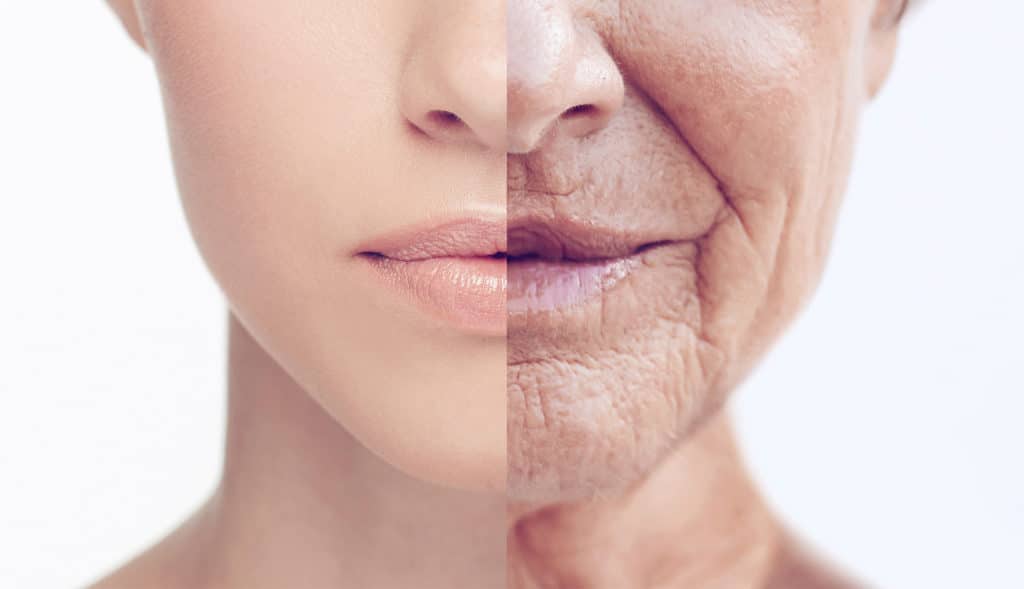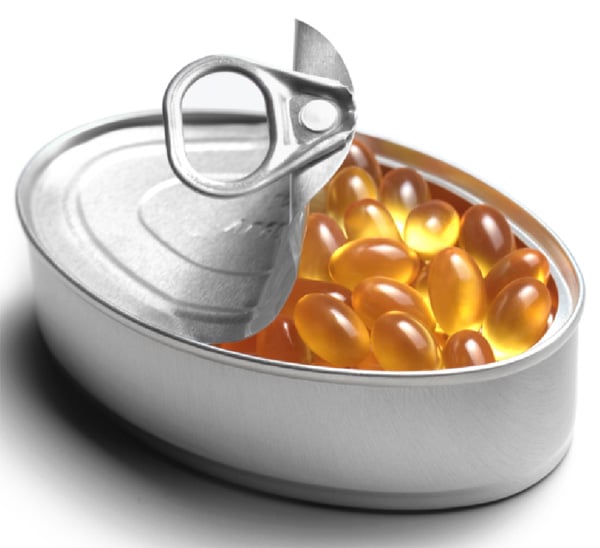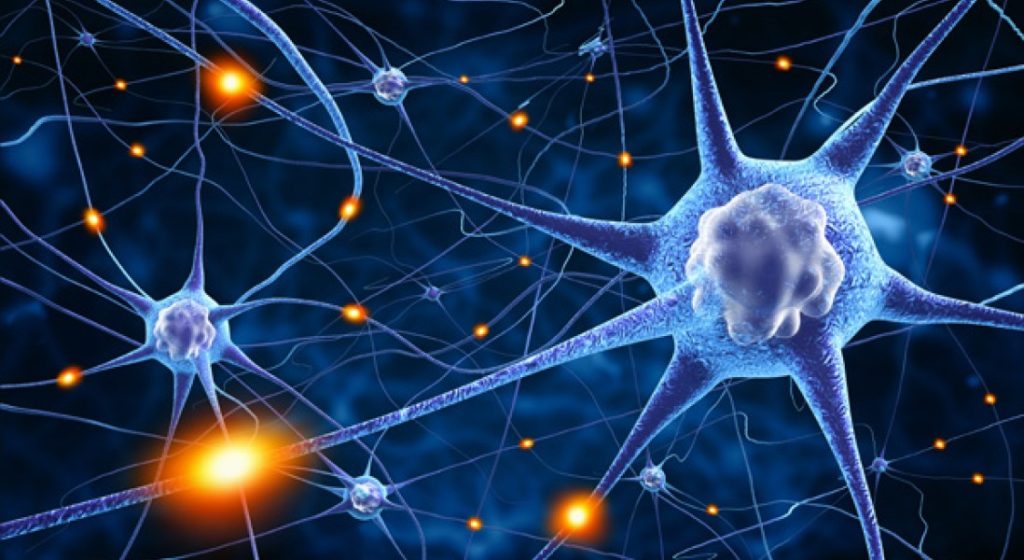You’ve probably heard of this beneficial fatty acid as a miracle substance that does wonders for your brain and body. The amazing thing is that all the good press it receives is not fake news!
If you’re curious about what omega-3s like ALA, EPA, ETA, and DHA do, you can learn about 15 of its most wonderful benefits right below!
But remember — your body doesn’t produce omega-3s on its own, so you’ll want to consume it in form of oily fish, algae, krill, and even supplements to see all these crazy health benefits:
1. Reduced signs of aging

Docosahexaenoic acid (DHA) and Eicosapentaenoic acid (EPA) are types of omega-3 that play in an important role in maintaining healthy skin. Skin cell membranes rely on DHA for structure and on EPA for hydration and appearance. If you head out to the beach every time the sun is bright and shining, then you should thank omega-3s for protecting your skin against the production of natural substances that gnaw away at collagen.
2. Lowered risk of certain cancers

There have been numerous studies centered on the health benefits of omega-3s. Over time, scientists have come to the belief that high levels of omega-3s could be potential in the fight against cancerous growths. Studies in China and Scotland have found that an increase in DHA and EPA intake has slowed and even reversed the development of prostate and breast cancer cells.
3. Improved quality of sleep

The only way we can fully restore our energy for the next day is through sleep. If you don’t get enough of it, you’re putting your overall health in grave danger. Unfortunately, children are the ones who seem to experience the most sleeping problems, and this can be attributed to a lack of omega-3 fatty acids. The best news is that consuming omega-3 supplements can help both you and your loved ones fend off sleep apnea and depravation almost instantaneously.
4. Decreased anxiety

Depression and anxieny are mental problems plaguing more than a million people worldwide. Common symptoms of anxiety include lethargy, extreme sadness, and inexplicable nervousness. Interestingly enough, omega-3 fatty acids – specifically ALA (Alpha-linolenic acid), DHA, and EPA – will fight anxiety and depression, giving the patient a fresh, new perspective on life. In fact, these omega-3s have been found to be just as effective as certain antidepressant drugs.
5. Better eye heath

The omega-3 type DHA makes up a lot of the composition of our retinas. If you don’t have a sufficient intake of DHA, you’re most likely to experience eyesight problems. Go too long without DHA and you might end up having permanent eye damage and even blindness later on in life! Good thing is, even omega-3 supplements can cover the missing DHA from your diet.
6. Lowered risk of allergies

Omega-3s do more for our bodies that we might realize. They don’t just help keep our minds sharp and our bodies healthy, but they also help in fighting allergies. Those who consume more omega-3s experienced a reduction in eosinophil activities, triggering allergic reactions and inflammation when exposed to pollen and dust. In children, consuming enough omega-3s may help prevent allergy development at a young age.
7. Better heart health

Strokes and heart attacks are the number one killer worldwide. Years and years ago, scientists have found that consuming high quantities of fish could significantly reduce the risk of certain heart diseases. Apparently, it’s the omega-3 content in fish that is linked to healing an unhealthy heart. Consuming more omega-3s helps in controlling blood pressure, and increasing the “good” cholesterol (HDL).
8. Reduced inflammation

Inflammation is the root of many health conditions, including metabolic syndrome. People suffering from metabolic syndrome – a collection of conditions that include obesity and insulin resistance – need to increase their omega-3 intake. More cod liver oil in your diet will help your body both produce and use insulin, as well as fight inflammation brought on by metabolic syndrome.
9. Improved bone and joint health

Millions of adults suffer from osteoporosis in the world. On average, one person suffers from an osteoporotic fracture every three seconds. Calcium helps strengthen bones, but as we grow older, drinking milk by the gallon is no longer doable without suffering smelly consequences.
Thankfully, omega-3 fatty acids can help increase the amount of calcium and vitamin D you absorb through fortified foods. Studies found that taking EPA supplements have helped increase bone density in the elderly.
10. Reduced symptoms of ADHD

Attention deficit hyperactivity disorder, commonly known as ADHD, is a behavioral disorder that commonly inflicts young children. This condition causes them to act more hyper, irrational, and generally do poorly at school.
Studies found that children affected by ADHD have lower omega-3 fatty acid contents in their bloodstreams compared to their healthier peers. Those studies also concluded that omega-3 supplements can help reduce the effects and even prevent the development of ADHD early on.
11. Milder menstrual pain

Roughly ¾ of the population of women suffer some degree of menstrual cramping. For a majority of them, the pain is caused by a hectic work life, either at the office or at home.
Lucky for them, by increasing their omega-3 intake, the pains won’t diminish but will become more bearable. Interestingly, adolescent women suffering from PMS cramps found that taking omega-3 supplements actually did more for their pain than standard medicine.
12. Lowered risk of asthma

Asthma is a chronic lung condition that causes excessive coughing, shortness of breath, and wheezing, even after doing the most mundane of activities. Severe asthma is caused by swelling and inflamed airways and can be potentially fatal to those afflicted by it.
You can help in preventing asthma development in children and young adults by increasing their intake of omega-3. It can also soothe the effects of asthma and inflammation for those who are already suffering from asthma.
13. Healthier skin

Earlier, we talked about how omega-3s can help keep signs of aging at bay, but it does much more than that for your skin. Omega-3s help by reducing inflammation, both inside and out, so acne breakouts won’t leave as much of a mark as they normally would. The moisturizing effects of omega-3 fatty acids also help keep your skin supple by preventing collagen deterioration.
Even though omega-3 can do a lot for your skin against sun damage and general wear and tear, it is not a substitute for sunscreen, nor should it be used in place of topical creams.
14. Decreased risk of blood clots

Omega-3 fatty acids help in keeping our hearts pumping blood and oxygen to our organs. However, omega-3s also help our blood make it to its destination by keeping our arteries and veins clear of clots.
The formation of blood clots can be fatal if undetected. Omega-3 fatty acids, in supplement form or otherwise, can prevent platelets from clumping up and forming clots. This significantly reduces the risk of heart attacks and stroke.
15. Neuroprotective effect

Mental decline is a symptom that can affect anybody at any age, but it more commonly appears as a sign of aging. Studies have shown that an omega-3 intake has a neuroprotective effect. This is vital in combatting age-related conditions such as dementia and Alzheimer’s disease. Taking omega-3 supplements has the potential to prevent and even reverse cognitive deterioration, even in older folks.


